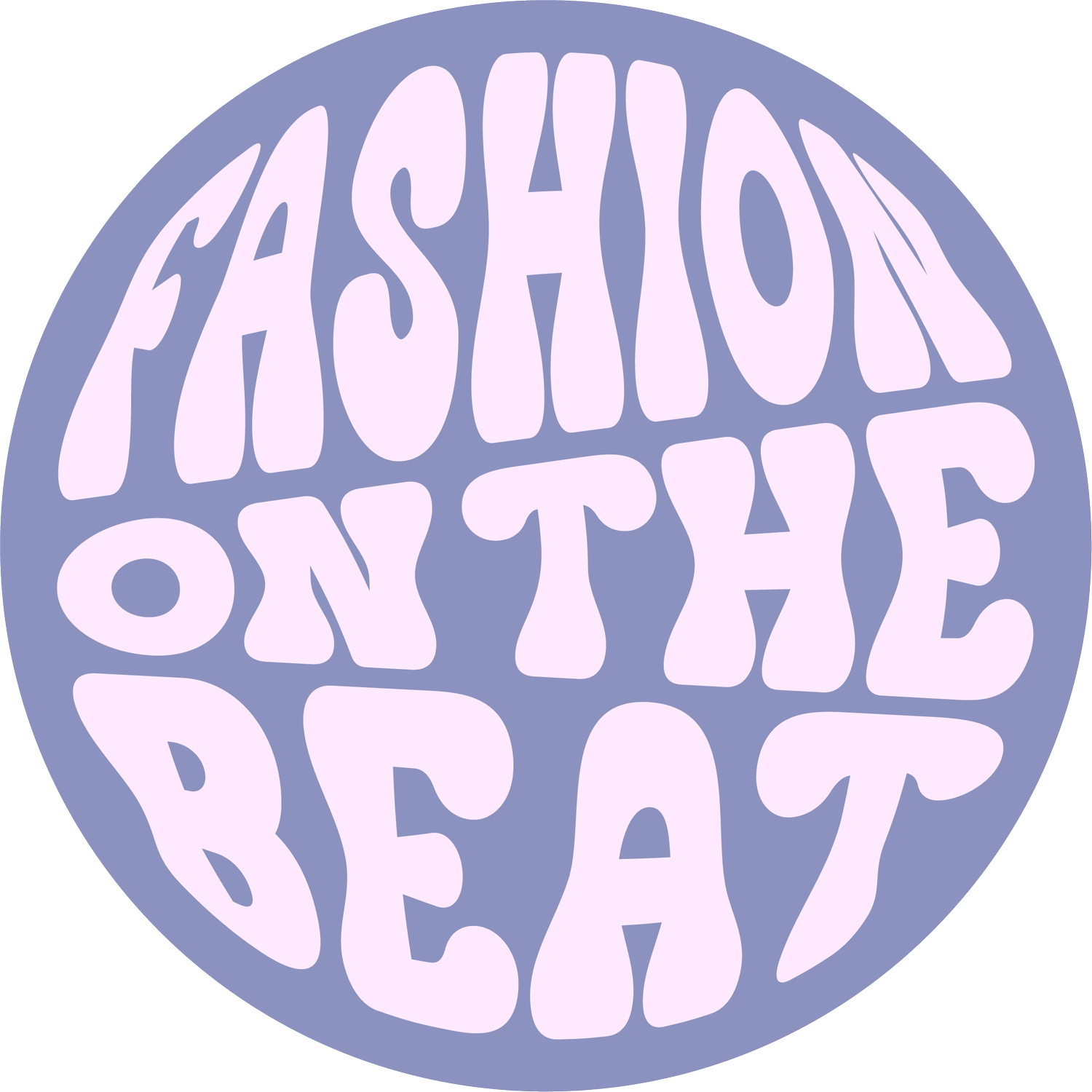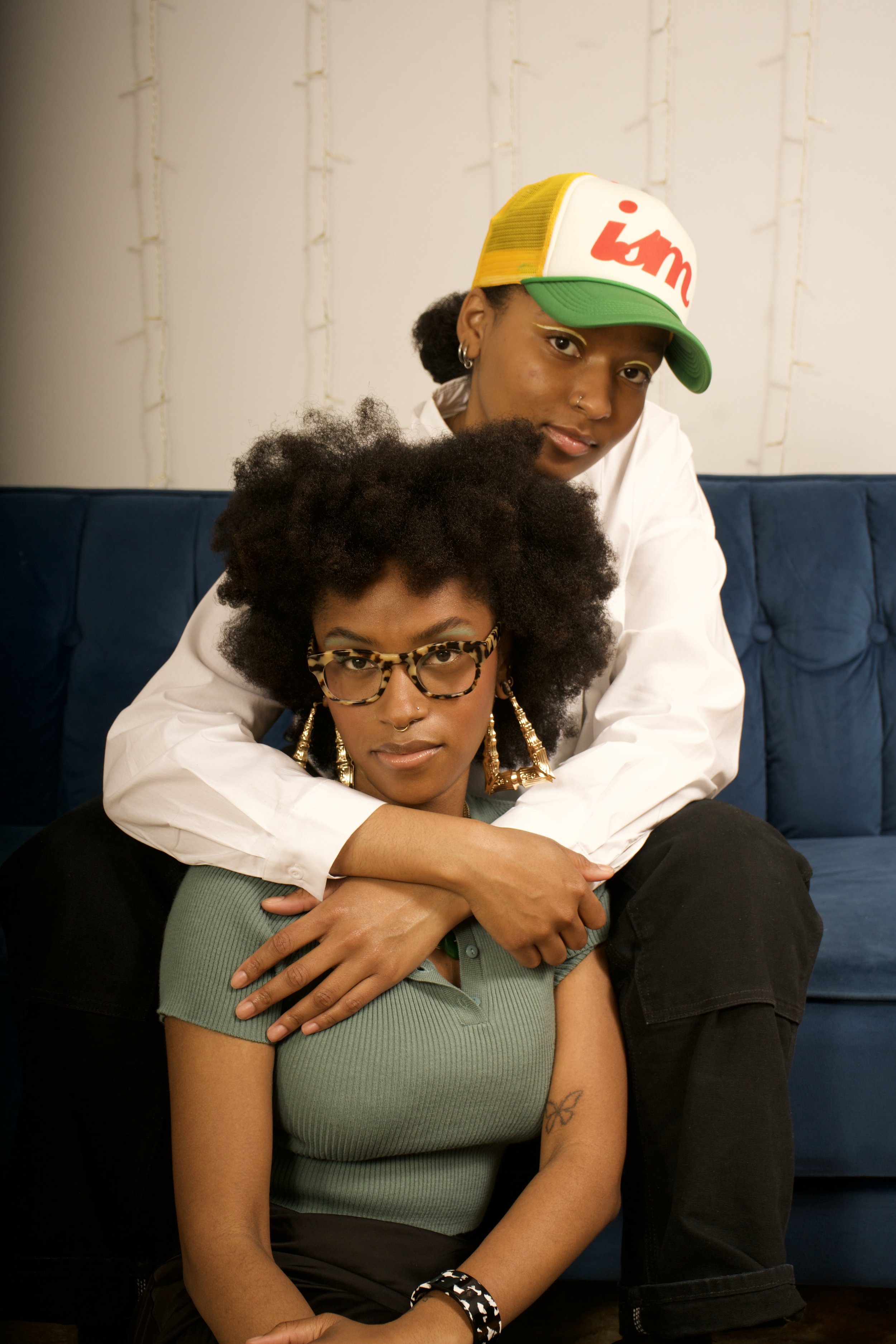Standing up for yourself through writing, sharing, and caring with Rayelle and Rachel
Talking about love pushes all of us to be grounded and real with ourselves. Hearing the perspectives of other fellow Black people made me feel welcomed and bonded with the community; adding the point of view of Black queer folks enriched the exchange.
Image maker Rayelle and poet-artist Rachel shared their stories and impressions on love and their queerness influences their lives. You can see how much in love these two are. Both of them appear timid and shy at first, but once you get to know them they open up and you can see their soft love languages flowing between each other. The looks, the smiles, and the tone of their voices reflect their being.
In order to understand the meaning of love, during my conversation with Rachel and Rayelle we were able to refer to many artistic expressions, including the words and writing of Audre Lorde, James Baldwin, and bell hooks. We talked about the nightlife scene in New York, and how communal and safe can be among Black and queer people. Love is lots of things, and one of those is safety.
Photography: Timothy White
Who are you? Let’s hear from you.
Rachel (RC): I’m a queer Black woman, who is constantly learning and finding herself every day. I am a creative who has to learn how to make time for her work life, versus the things I want to do in the creative field. Balancing all within is my thing.
Rayelle (RY): I’m a Black queer image-maker, a lover, a family person, and a bit of a wanderlust spirit.
What is love?
RC: Love is friendship. Love is being there for others and yourself. Love isn’t linear and it’s not going to feel always positive, which isn’t a negative thing. It just shouldn’t feel forced, never.
RL: Love is a huge responsibility. Everyone doesn’t receive love the same way and it is your responsibility to learn the person you’re loving and balance your love languages, along with what you need from each other.
Photography: Timothy White
How do we overcome the stigma around traditional practices and paths in identities?
RC: Surround yourself with people who are supportive of you as a person. Reading has helped me with being able to step over traditional roles and ways of life. It allowed me to be more imaginative and see things from different perspectives. Even though it’s something I don’t do as often as I would like, it helps me to view my life in a different way. Audre Lorde, who is someone who means a lot to queer women, has helped me break boundaries in spaces of traditions. She was a queer Black woman who had to learn how to navigate a world where her persona wasn’t accepted. She did a lot of traveling too, which I find inspiring. I feel like knowing and learning yourself with also people who help you break out of your shell and not be stagnant are ways through which you can live your life to the fullest potential.
RY: Seeking safety within the community and support spaces have been ways I was able to find and express myself. Gatherings like Everyday People are good examples.
Photography: Timothy White
How does your queerness influence your life and love narratives?
RC: Through my queerness, I learned to stand up for myself and others, while also writing. Most of my poems have been about love and relationships, me finding my voice. Queerness has become a constant in my words. In terms of creativity, queerness has helped me become freer.
RL: Queerness has taught me that it is ok to be led by my desire for women and non-binary folks, including men. This has influenced my work, specifically image-making. I tend to emphasize intimate moments of care and attention within BIPOC and queer people. Sometimes these things are not seen as valuable nor relevant in academic spaces, but my queerness has taught me the opposite: my pleasure is important, as much as my communities and feelings of safety and connection.
Photography: Timothy White
If things like colonialism and White supremacy didn’t exist, how would the world look like for and dwith queer people?
RC: Queer people are generally a little bit more prone and expressive in showing love. If we lived in a world where our sex and gender orientations wouldn’t be persecuted, we would all be willing to help each other. Mutual aid is a big thing and needs would be met if everyone would partake in these activities.
RL: Black queer people would probably still be in Africa if colonialism didn’t exist. We would be our most natural selves and much more connected to our History and the Earth too.





